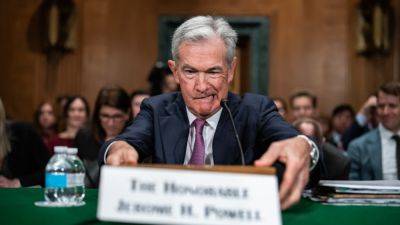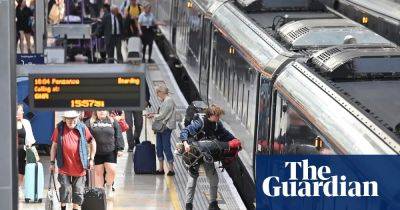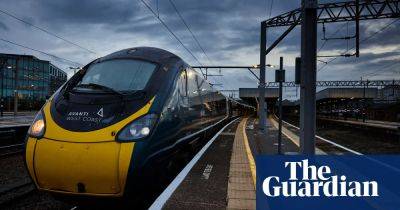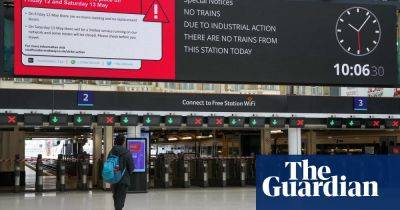Rail strikes: Hopes of a resolution have been indefinitely delayed
Almost a year since the first national rail strike was called, another series of stoppages loom. Passengers who have been spared the usual round of disruptive bank holiday engineering works this weekend won’t be so lucky in the second half of the half-term break. Strikes by drivers and crew will more or less wipe out services on Wednesday and Saturday, shred schedules on Friday, and add a bit of scattergun disruption in between.
This time in 2022, the mere prospect of the biggest rail strike in decades was causing consternation. Now, though, the latest guaranteed upheaval has not even produced a round of talks between unions and industry – let alone ministers – to try to head off the disruption.
A gloomy stalemate has taken hold in recent months, and it is hard to see from where any imminent change will come. The one tectonic shift in a year of attrition was the settling of a 9% pay deal with staff at Network Rail in March: a moment that both deprived the biggest union, the RMT, of its greatest leverage in strikes, and also fuelled belief in government and the industry that a similar deal could be done at train operators.
Instead, a pay offer that the Rail Delivery Group (RDG) negotiators made to RMT general secretary Mick Lynch crumbled, whether due to duplicitous legalese in the written detail (as the union maintains) or because Lynch could not persuade a hardline union executive (as the train companies maintain).
The RDG and ministers have refused to budge, and demand a referendum of union members. But the deal in detail holds even less for the train operators’ staff, and union members have voted for another six months of potential strikes, starting with Friday’s.
Since then, some informal contact is understood to have
Read more on theguardian.com























